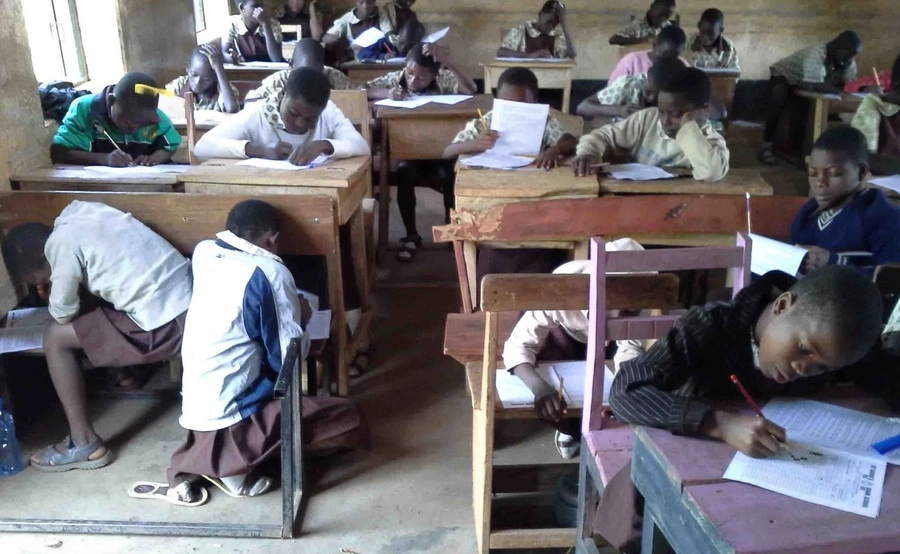
15 Problems of Education in Nigeria and Possible Solutions
According to Wikipedia, Education is the process of facilitating learning, or the acquisition of knowledge, skills, values, beliefs, and habits. It is the act or process of imparting or acquiring general knowledge, developing the powers of reasoning and judgment, and generally of preparing oneself or others intellectually for mature life.
According to the findings fully supported by Pro-Papers, an education writing firm in USA, the education sector should be paid lots of attention because it gives room for the country’s development. Unfortunately, the quality and standard of education in Nigeria is poor because it has not been paid adequate attention.
👉 Relocate to Canada Today!
Live, Study and Work in Canada. No Payment is Required! Hurry Now click here to Apply >> Immigrate to CanadaNigeria runs a federation system, so the Nigerian education system is overseen by the Ministry of Education. The education system at the federal level is managed by the Ministry of Education. This includes management of federal universities and schools. State public schools and tertiary institutions are controlled regionally by the Ministry at the state level.

We’ll try to highlight the leading causes for poor state and quality of education in our country and possible ways out.
1. Poor Funding
The first and possibly one of the greatest challenges facing education in Nigeria is inadequate funding by the federal, state and local government. In the year 2017, Nigeria’s education sector was again allocated much lower than the 26 percent of national budget recommended by the United Nations.
The global organization recommended the budgetary benchmark to enable nations adequately cater for rising education demands. But, in the proposal presented to the National Assembly, President Muhammadu Buhari allocated only 7.04% of the 8.6 trillion 2018 budget to the education.
The total sum allocated to the sector is N605.8 billion, with N435.1 billion for recurrent expenditure, N61.73 billion for capital expenditure and N109.06 billion for the Universal Basic Education Commission.
2. Poor Governance
Poor governance and mismanagement have crippled most sectors in the country not leaving behind the education sector. Government’s attitude towards crucial problems of education, especially its quality, is lackadaisical.
Governments at all levels are more concerned about issues that are not as important as education and this is crippling the sector.
👉 Relocate to Canada Today!
Live, Study and Work in Canada. No Payment is Required! Hurry Now click here to Apply >> Immigrate to Canada3. Corruption
Corruption is one of the major problems in the country and the educational sector is not an exception. There are stories of lecturers collecting bribes from students in exchange for good grades, university administrators demanding money from students to have their exam results compiled and submitted to the (required) National Youth Service Corps, admission seekers paying money to get admission into universities and so on.
Also, school funds meant for salaries, maintenance and so on are being diverted for personal use and mismanaged. This cuts across all the level of the sector; universities, private and public secondary schools.
4. Lack of Responsibility and Control
This is a problem not only affecting Nigeria but most countries on who exactly controls the educational sector. Is it federal, state or local government, for example, the control of primary education is neither fully in the hand of federal government, nor state or local government, this is a great barrier for effective educational development at the basic level.
Works needed to be done are being passed around and no tier of government wants to actually take any responsibility
5. Politicization of Education
Talking about politicization in the sector, the desire to compete with others, governments at all levels, especially at the state level, attempt to run many institutions even when they are least prepared to do such. This cause the general fall in the standard of the initially existing ones and the available budget cannot cater for all their needs.
In addition, state governments give accreditation to private schools that they know are not well equipped for teaching, all in a bid to generate more revenue for themselves.
6. Lack Of Infrastructure
In past years, schools and other vocational institutions have collapsed due to abject neglect by governments. Our tertiary institutions having to fall into dilapidation and products of such schools are not given adequate training to compete with other products of another country.
Many schools lack basic equipment for conducive learning, most especially for science practical classes, and those that claim to have are managing the old ones. Hence, the students only learn the theoretical steps rather than carrying out the practical aspect. Also, the libraries in schools are lacking the needed books, journals and magazines.
7. Indiscipline
This is manifested in examination malpractices, secret cult menace, corruption etc. The investigation revealed that some examination centers exist in this nation where parent are paying money for qualifying their wards to pass SSCE –WAEC /NECO/JAMB.
Indiscipline is so endemic in the sector that we hear of cult’s killings almost every day in the media, students are no longer concerned about academic excellence.
8. Poor Parenting And Guidance
Parents are meant to provide the basic needs needed to meet the challenges of life, but many parents do not even show enough care or support. All they want is for their wards to excel irrespective of the means.
This lack of proper guidance for their wards leads to encouragement on their part to engage in exam malpractices and even going as far as paying for “special centers” for their wards.
We have also heard stories of parents following their wards to schools to fight or harass teachers all because their wards were cautioned.
9. Lack of Teaching Aids
Teaching aids are objects or devices used by a teacher to enhance or enliven classroom instruction. There is a wide range of teaching aids which can be audio, video, books, DVDs, Projectors, computers etc. these are not provided for teachers thereby making teaching difficult.
10. Unstable Curriculum and Subject
An effective curriculum provides teachers, students, administrators with a measurable plan and structure for delivering quality education. It acts as a roadmap for teachers and students to follow the path to academic success.
There is no stable curriculum in the sector, because of changing policy, most schools cannot keep up and you see most schools using the British curriculum.
11. Unwillingness to Study Education in Schools
Unlike other academic disciplines that are highly competitive, there are scanty applications into faculties of education and colleges of education. According to research, in 2015, of the more than 1,700,000 applications for university admissions, less than five percent applied for courses in education. These data point to the lack of interest of candidates for a career in the teaching profession.
Most graduate teachers are not professionals and are inadequately exposed to teaching practice while many of them cannot communicate effectively in english which directly affect the education sector.
12. Unstable Staff
Unstable condition of teaching has made most professionals search for alternatives and because of the meager salaries they earn, some of them have other alternative and they pay more attention to these alternatives, this no doubt affect their effectiveness and dedication.
13. Lack of Good Teachers’ Welfare
There is poor teachers welfare in the sector, teachers are poorly paid and lack basic welfare packages. In addition to the poor salary, they are not paid on time which is why we hear of strikes often.
Once the teachers go on strikes, the students are asked to go home which often result in them spending long years studying for a course, there are cases of student spending five to six years studying for a four year course.
14. Unaffordable Education
The minimum wage in Nigeria is eighteen thousand naira and most homes survive on this. It will be hard for such homes to send their children to school because of the high rate of school fees, books and so on. Most people cannot further their education because of the high rate of acquiring a university education.
15. Scarcity and Prohibitive Cost Of Books At All Levels Of Education
The necessary textbooks needed for easier learning are either scarce or ridiculously expensive, making it hard for students or teachers to buy or use them
The above problems are just a few out of the many problems facing the education sector. So what can be done to solve the problems facing the education sector in Nigeria? Find the recommended solutions to the problems below.
- Most of the problems are as a result of lack of funding, inadequate and proper budgetary allocation. To solve this problem, the government should provide adequate funds for acquiring quality training facilities, for renovating schools and also getting good infrastructure to ensure there is a conducive environment for teaching and learning.
Furthermore, the funds should be maintained and properly monitored to avoid mismanagement and embezzlement.
- Governments at all levels need to be committed to delivering a competitive and high quality and standard of education across the country.
- Examination regulatory bodies need to work tirelessly to curb examination malpractices.
- Teachers’ salaries need to be improved, this will serve as a motivation for them to be more effective and dedicated.
- Curriculum needs to be revised and improved upon. It needs to be more practical and researched based rather than just theoretical and the inclusion of extracurricular activities.
- Measures need to be taken to ensure stability in the teaching profession. Qualified and professional teachers should be employed.
- Teachers, lecturers need to be given periodical training to ensure what they are giving out is good quality.
- Teachers should be provided with quality and up to date materials, also quality teaching aids will help to improve the education sector.
- Students should be admitted based on merit only.
- Penalties should be laid out for unlawful collection of money from students for any reason.
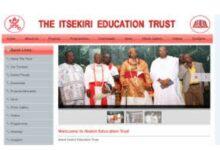


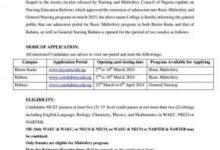
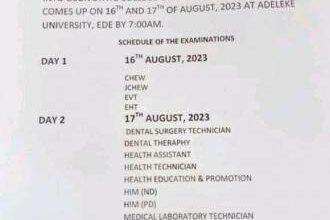



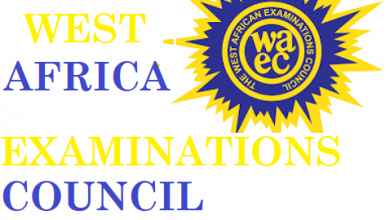
A wonderfully written piece. It is a complete X-ray of what is happening in the education sector and system in Nigeria as we speak. I am particularly concerned about the curriculum. There is nothing to write home about the curriculum currently in use in this country. The subject combinations are awful if not disgusting. When we have mediocre at the helm of education policy formulation in this country. People who know little or absolute nothing about curriculum design and planning. They just seat in offices and positions to combine unlikely subjects, subjects that are very unrelated. For instance, A combination such as Basic science and technology has subjects like Computer or ICT, PHE, Basic science and Basic Technology all in one. What sort of subject combination is that!
hmmmmmm! Nigeria we hail thee!
Well done for the X-ray of problems and their possible solutions.
Hi Kolawole Yetunde
Lovely name 🙂
Today, I read your article regarding “15 Problems with Education in Nigeria and Possible Solutions.” written 2018… Wow! It’s a great article and gives light on what is taking place in education in Nigeria. It’s sad to see that children do not have access to the kind of education that they need in order to grow to become well informed, rounded, and self-sustaining citizens in a country that has such a wealthy government. There is so much disharmony, and lack of equality of human rights – education having a huge for making a positive change- in what seems a beautiful, resource-rich country. It’s honestly heartwrenching to see the disrepair of not only schools and the education system in Nigeria, but also the lack of infrastructure there. I am a teacher for kids who have special needs (Autism, Dyslexia, etc.) My students come from a variety of socioeconomic backgrounds (wealthy and poor) but everyone is treated equally with respect and dignity and have access to meal provisions provided to the underprivileged kids. I have enormous respect and admiration for every one of my students and I am overseen to make sure that I provide a safe environment fully equipped with supplies, technology, books, and a balanced, quality, education to meet the needs of all of my students, not only as a whole group but also for each individual child. Free public education is and should always be regarded as an inalienable human right, and every country should by that right provide it to children in a safe environment with adequate supplies and access to resources, and with respect and dignity to each individual child.
Kind regards
Hello Helen, Thanks for the recommendations!
Hello,
My name is Nkiruka Enyindah, a doctorate student in Education Pedagogy at the University of Sherbrooke, Canada. I find your articles on Education very informative and I would like to have them in a PDF or a book format so I can use, refer to and keep them for my thesis.
Currently workimg on how ICT and a Differentiated Instrustuction would improve the quality of teaching and Learning in Nigeria.
Hello Nkiruka, we will make that available for you soon. Thanks